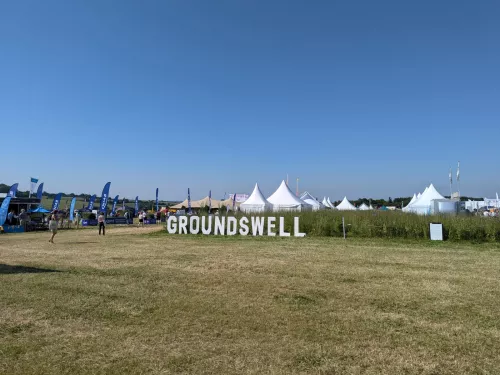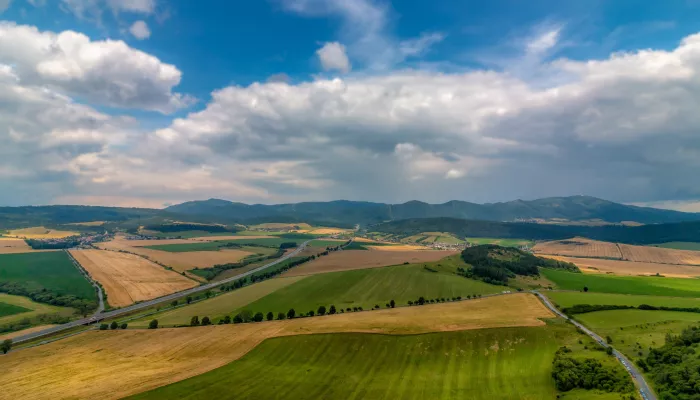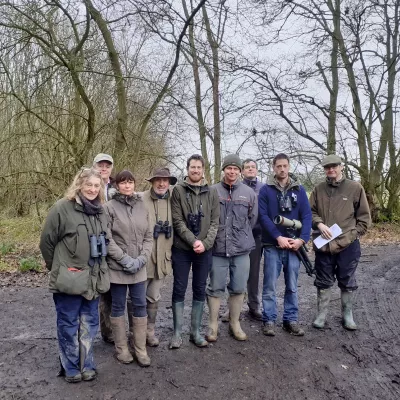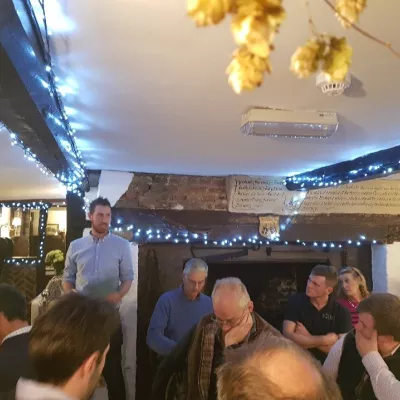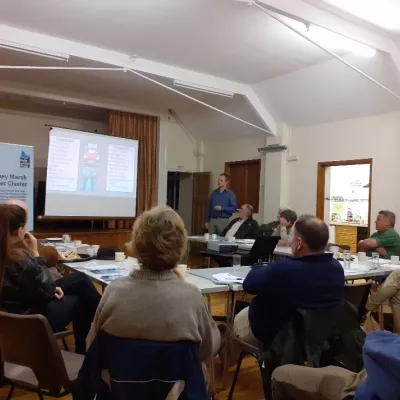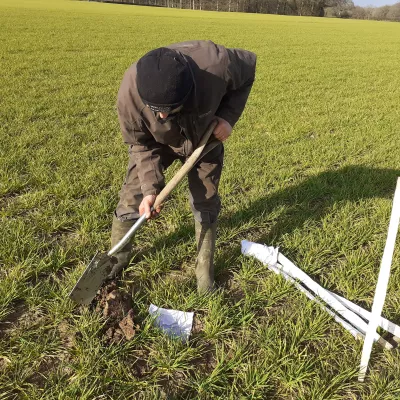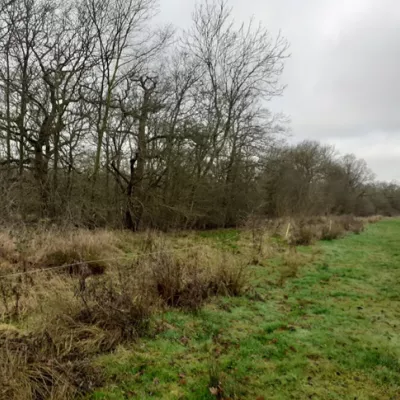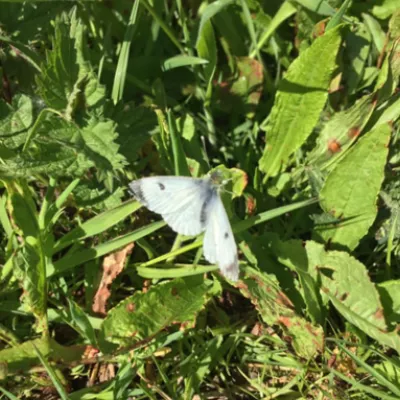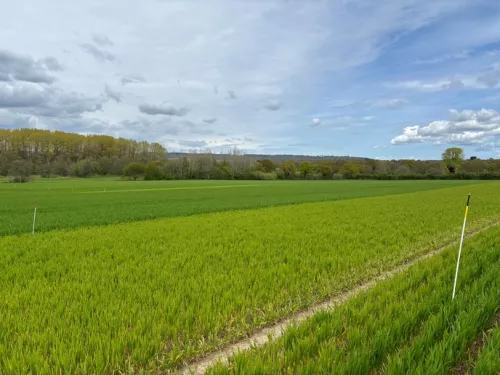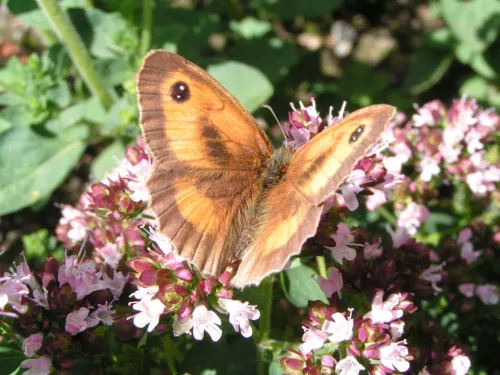Our Farmer Cluster is a group of adjacent farmers and land managers working together to share skills, experience and explore more sustainable approaches to farming and stewarding the land. Helped by a facilitator, Rory Harding, landowners and farm managers across the catchment of the river Beult, a river which starts to the west of Ashford before entering the river Medway at Yalding, are able to benefit economically from working collaboratively to deliver greater benefits for soil, water and wildlife at a landscape scale - creating the Upper Beult Farmer Cluster.
The river Beult’s upper catchment was identified as an important area to work with farmers, due to the high levels of pesticide pollution recorded in the river. This river is an important feature threading its way through the diverse low weald landscape including arable land, pasture, woodland, hop gardens and orchards.
Pesticides are routinely used in both arable and mixed agriculture, with negative consequences for both terrestrial and aquatic insects. Farmers are also increasingly aware of the financial costs of chemical inputs, and the strain this puts on the biology and soil structure fundamental to healthy crops.
We are therefore working together to promote alternative methods of pest control across the catchment and share experience and knowledge in order to collectively farm more sustainably. This includes actions to improve soil fertility, water quality, habitat connectivity between farms and understanding of the wildlife distribution at a landscape scale.
